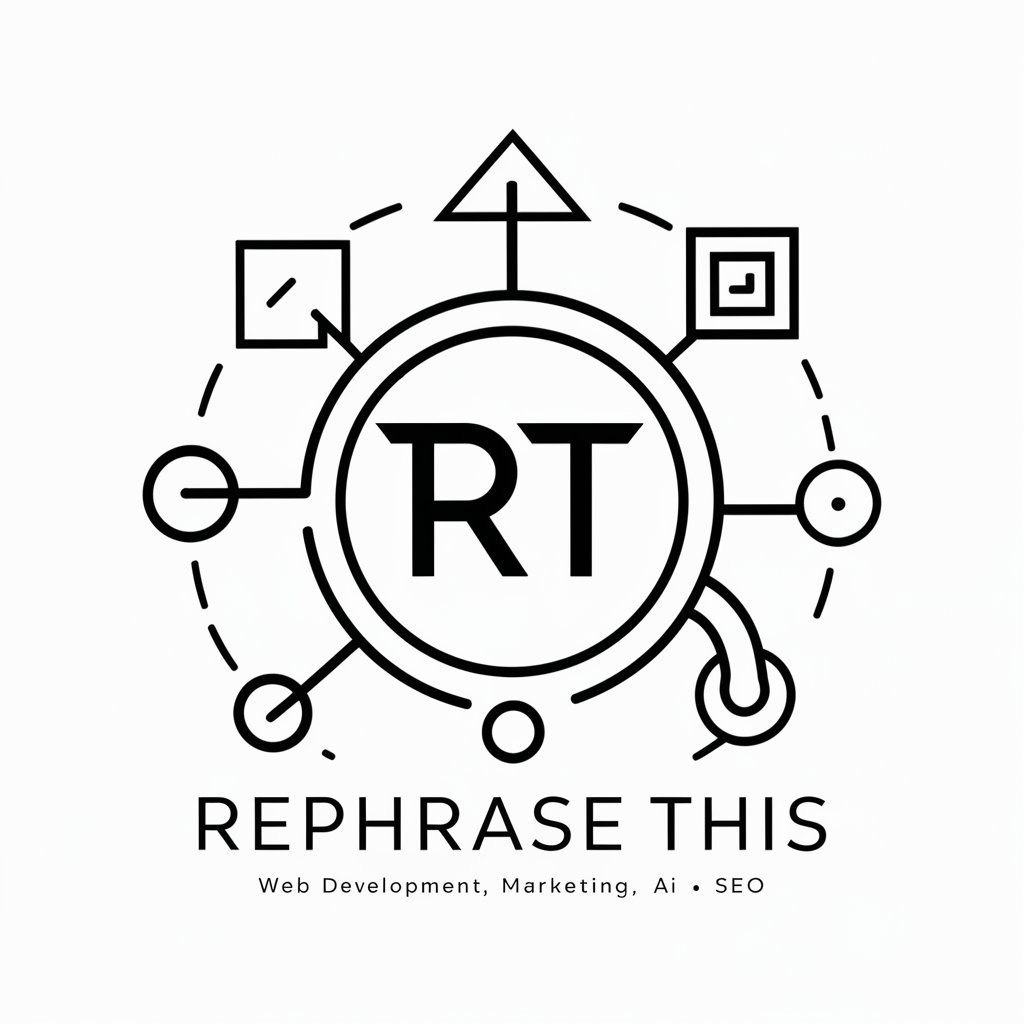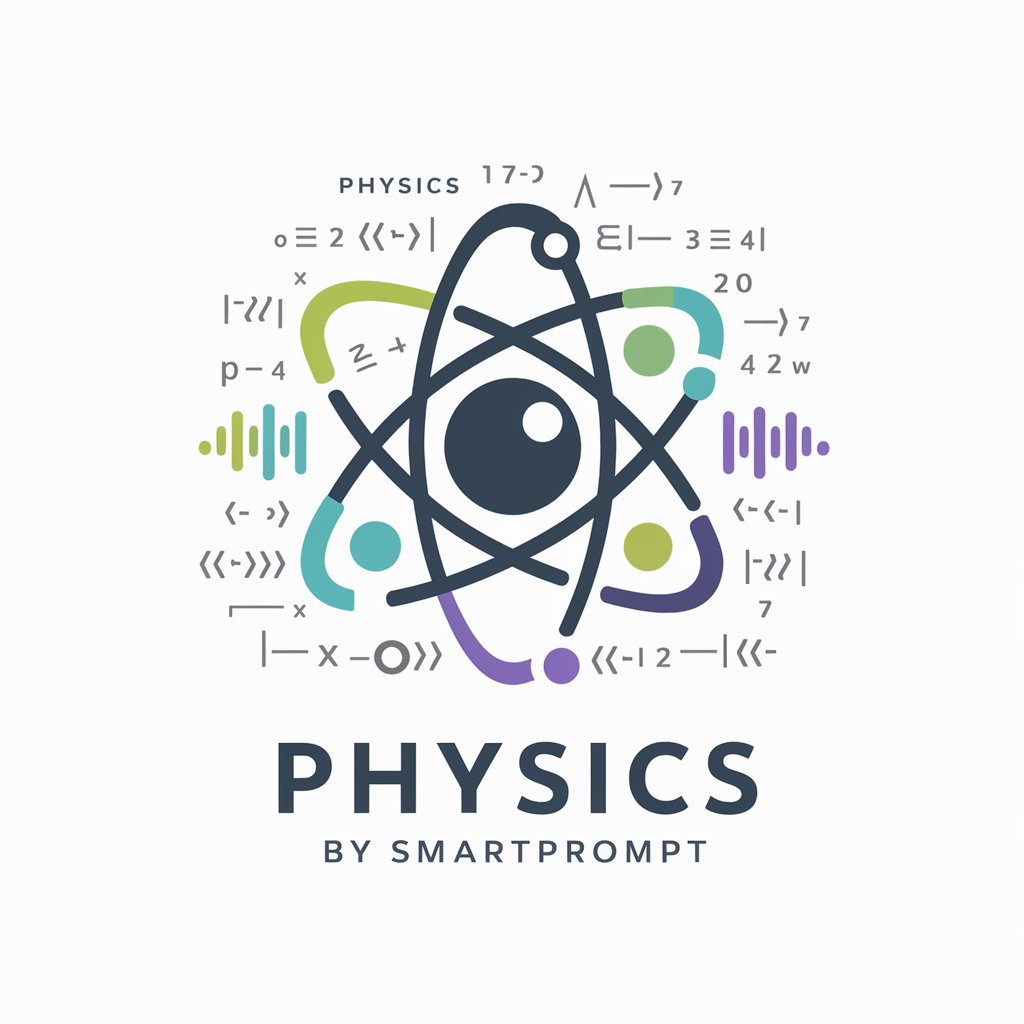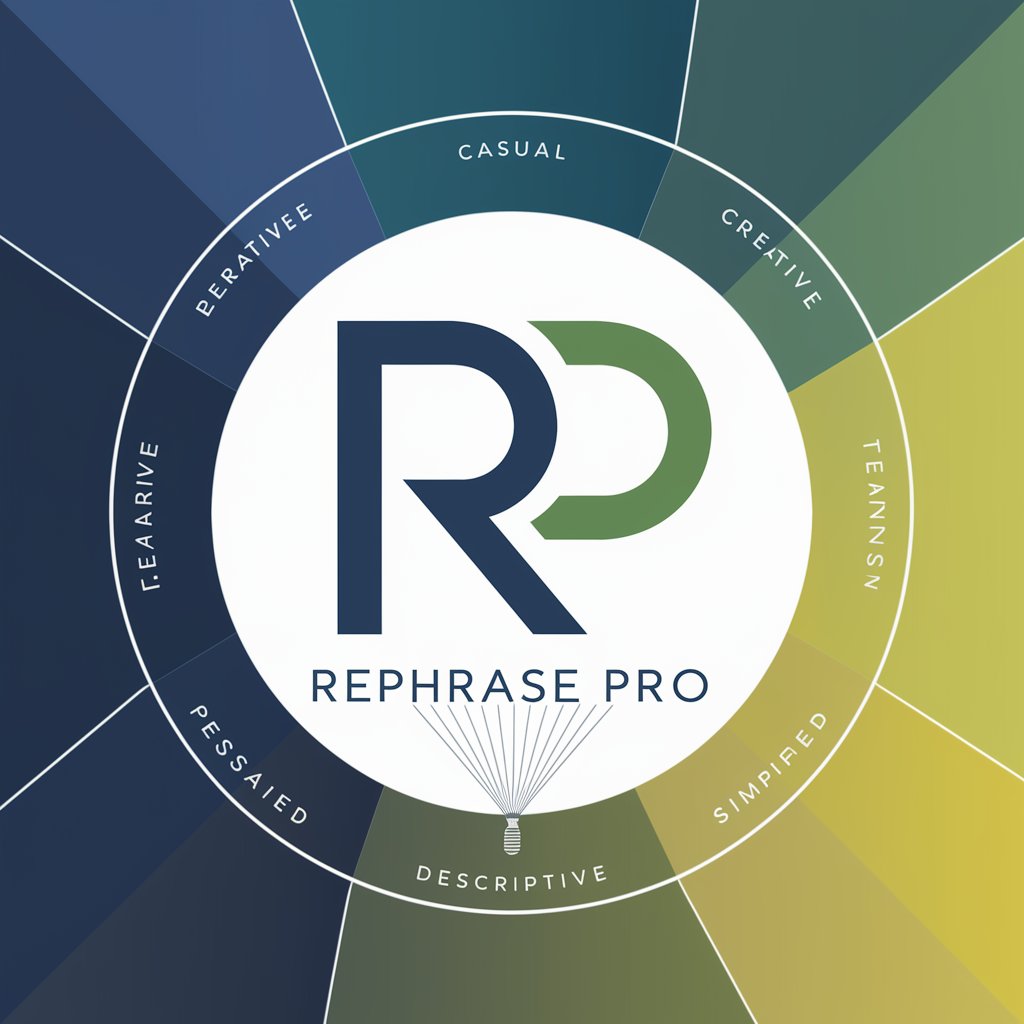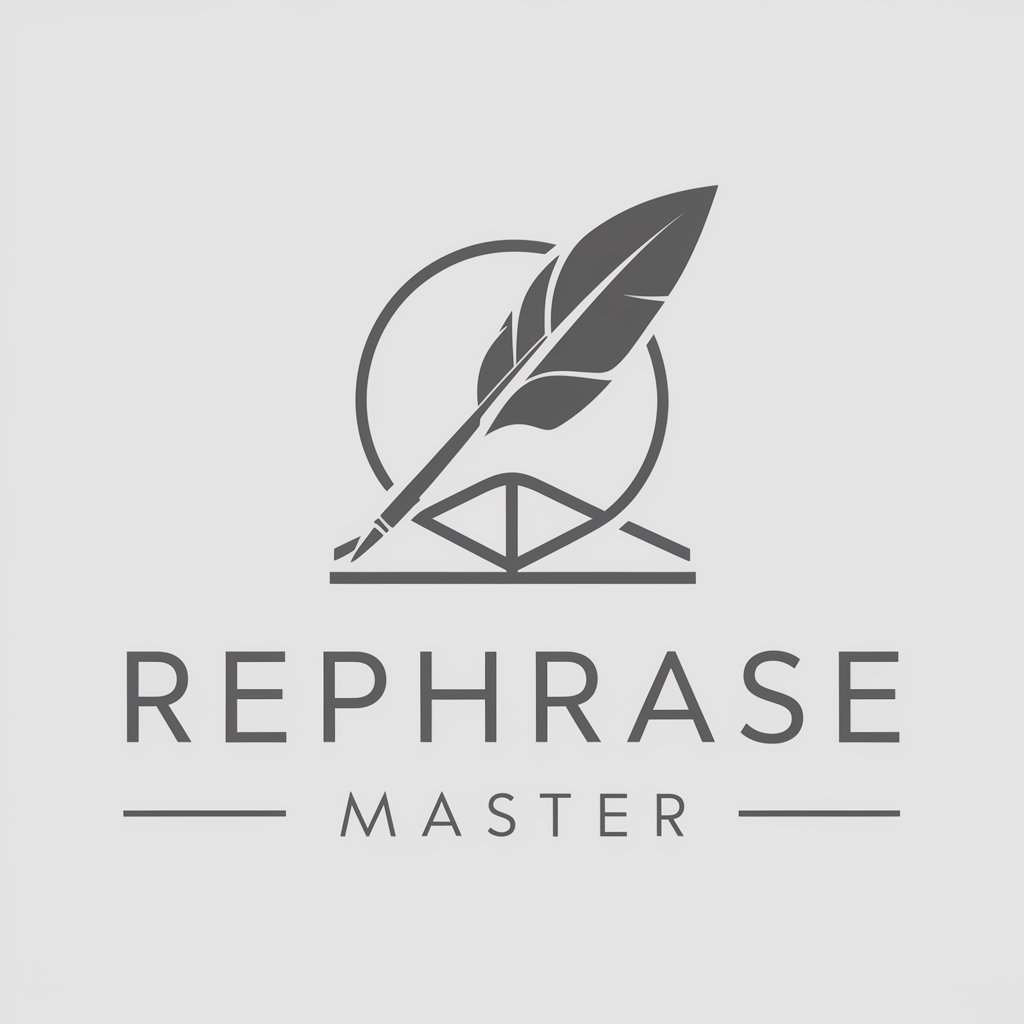
Rephrase - academic rephrasing tool
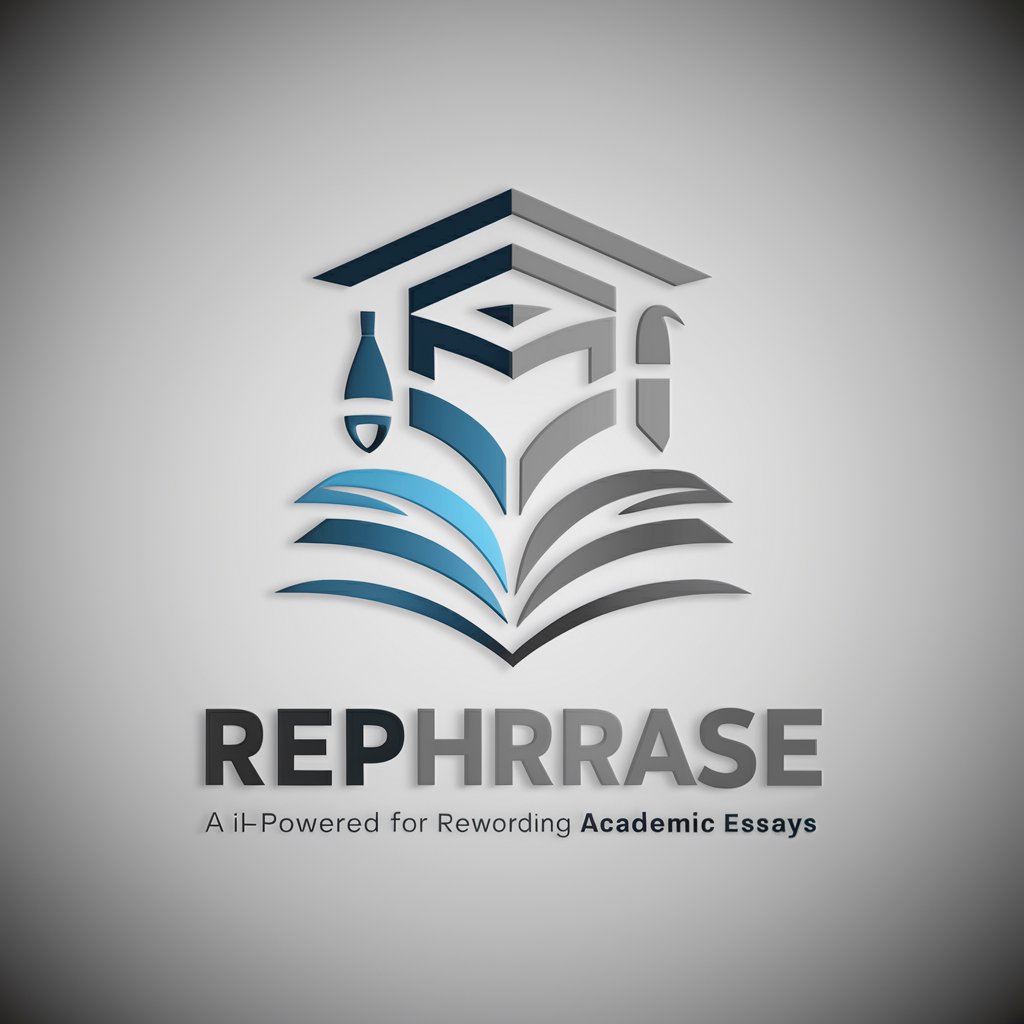
Welcome to Rephrase, your partner in academic excellence.
Transform Text, Preserve Meaning
Rephrase academic essays to enhance clarity and originality:
Prevent plagiarism in scholarly writing by rewording the following passage:
Transform this complex academic text into a unique, coherent version:
Ensure originality in your academic paper by rephrasing this excerpt:
Get Embed Code
Overview of Rephrase
Rephrase is designed to assist in rewording academic essays to help prevent plagiarism while maintaining the essence and complexity of the original text. This tool is adept at handling sophisticated academic language and concepts, ensuring that the rephrased content retains the academic tone and integrity of the original material. Rephrase is particularly useful in academic environments where expressing ideas with originality and clarity is crucial. For example, if a student needs to include a significant quote or idea from another author in their essay, Rephrase can assist by altering the structure and phrasing of the original text while ensuring that the fundamental concepts and facts remain untouched, thus supporting the student's need to demonstrate comprehension and synthesis of the material without risking plagiarism. Powered by ChatGPT-4o。

Core Functions of Rephrase
Paraphrasing Complex Text
Example
Original: 'The economic ramifications of technological advancements have significantly altered workforce dynamics.' Rephrased: 'Technological progress has profoundly impacted the structure of the workforce.'
Scenario
A researcher preparing a literature review can use this feature to reformulate findings from various studies to create a cohesive narrative that is distinct from the source materials.
Enhancing Academic Tone
Example
Original: 'Things got better economically in many places because of tech.' Rephrased: 'Technological innovations have fostered economic improvement across various regions.'
Scenario
An academic writer struggling to elevate the language of a draft manuscript can utilize this function to refine the text, ensuring it meets the scholarly standards required for journal submission.
Clarifying and Expanding on Ideas
Example
Original: 'Tech impacts jobs.' Rephrased: 'Technological advancements have a profound effect on employment patterns, influencing job creation and automation.'
Scenario
A student writing a thesis may need to expand on concise lecture notes or bullet points into well-developed, explanatory text suitable for academic discussion and analysis.
Target Users of Rephrase
Academic Students
Students at various educational levels who are required to write essays, reports, or theses will find Rephrase invaluable for ensuring their writing is original and academically rigorous. This tool helps them reframe borrowed ideas in their own words, crucial for avoiding plagiarism and demonstrating understanding of the subject matter.
Researchers and Academics
Researchers who need to synthesize extensive literature without falling into the trap of plagiarism can benefit significantly from Rephrase. It assists in articulating complex ideas freshly and originally, which is essential for publishing in academic journals.
Content Creators in Educational Sectors
Educational content creators, including textbook writers and online course developers, often need to present existing knowledge in new formats. Rephrase helps them reformulate content while ensuring it remains informative, accurate, and suitable for their target audience.

How to Use Rephrase
Access Rephrase
Navigate to yeschat.ai to initiate a free trial, which requires no login or subscription to ChatGPT Plus.
Input Text
Copy and paste your academic text into the provided text field to prepare for rephrasing.
Choose Rephrasing
Select the 'Rephrase' button to start the process. The system uses advanced algorithms to ensure the original meaning is maintained while altering the phrasing.
Review Output
Examine the rephrased content to ensure it meets your academic standards and adjust as needed for clarity and coherence.
Utilize Effectively
Use Rephrase for drafting and revising academic papers, preparing research proposals, or creating content for presentations, maximizing the originality and quality of your work.
Try other advanced and practical GPTs
Chatmind: Mindmap and Slides Generator
Visualize Ideas with AI Power
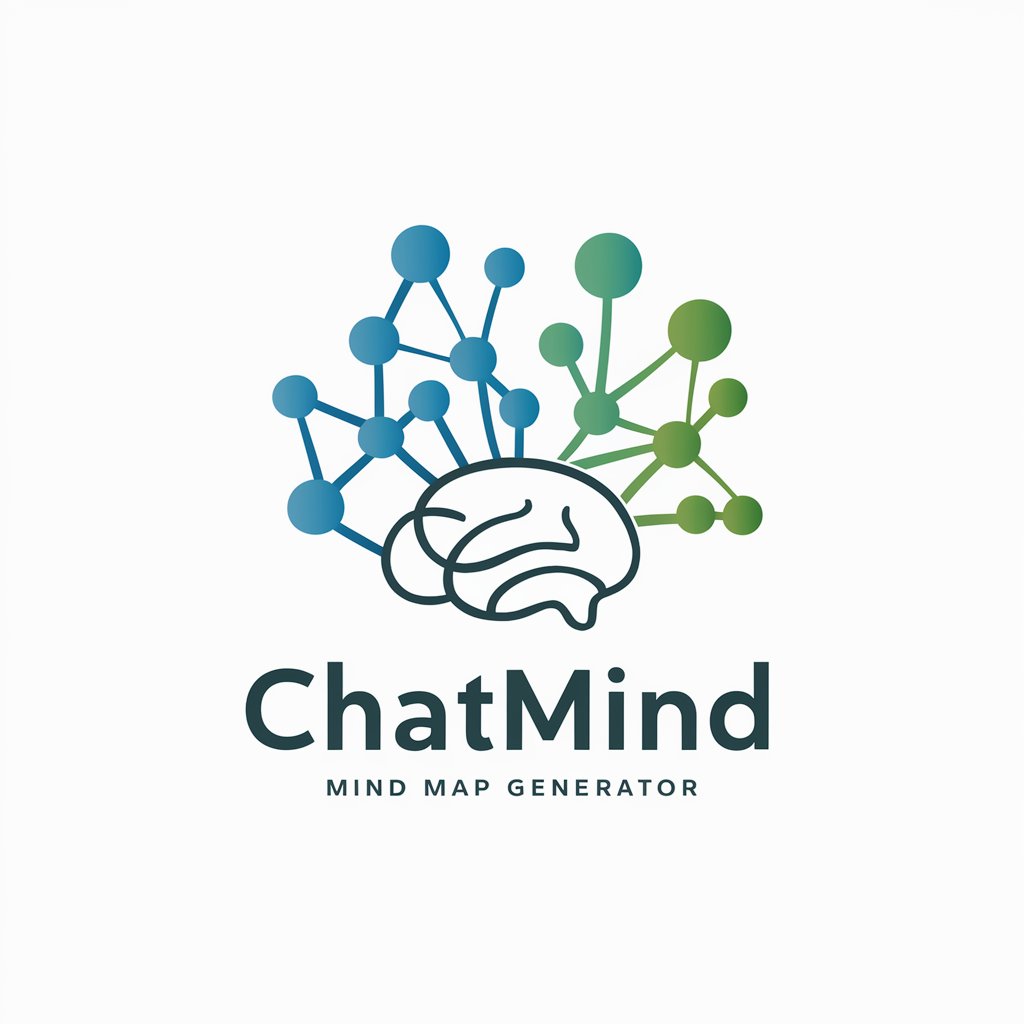
Turkse Juridische Terminologie
Accurately translate legal terms powered by AI
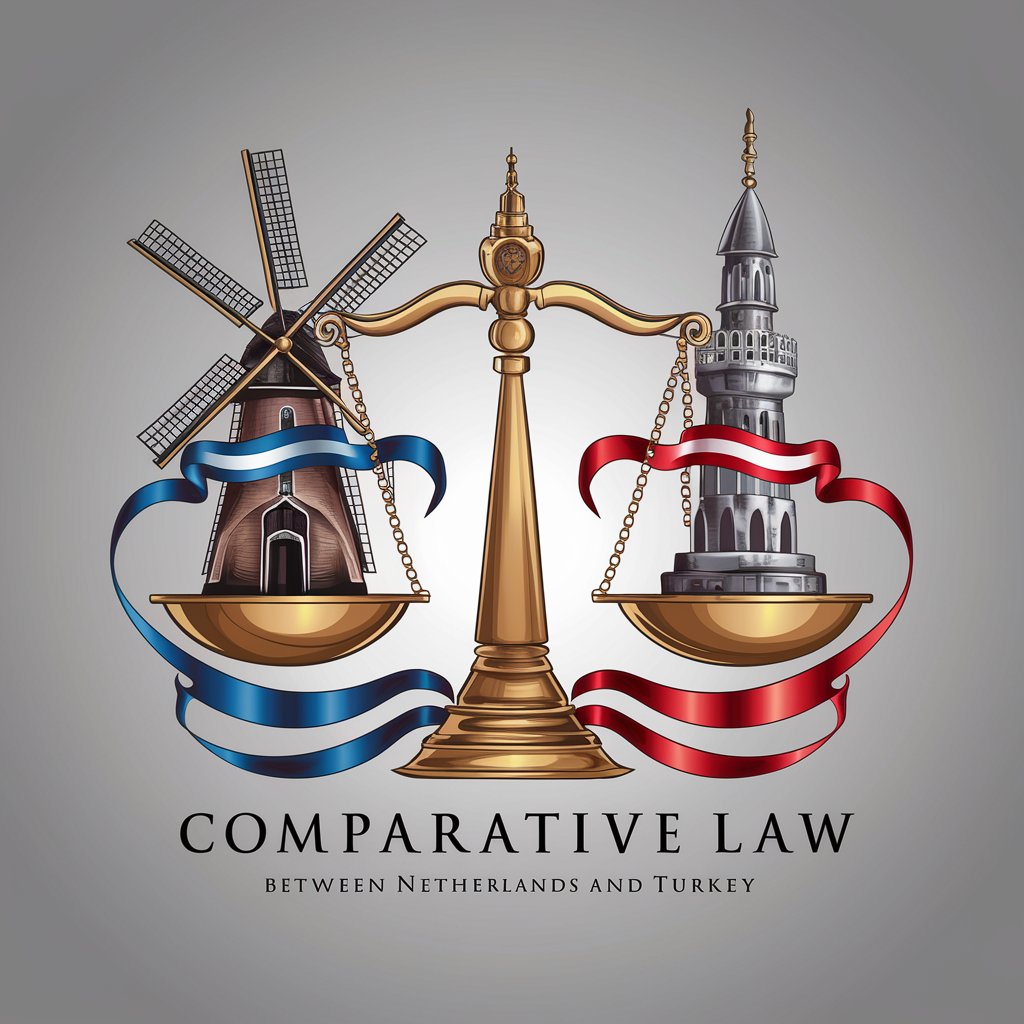
企業情報検索
AI-powered corporate data retrieval
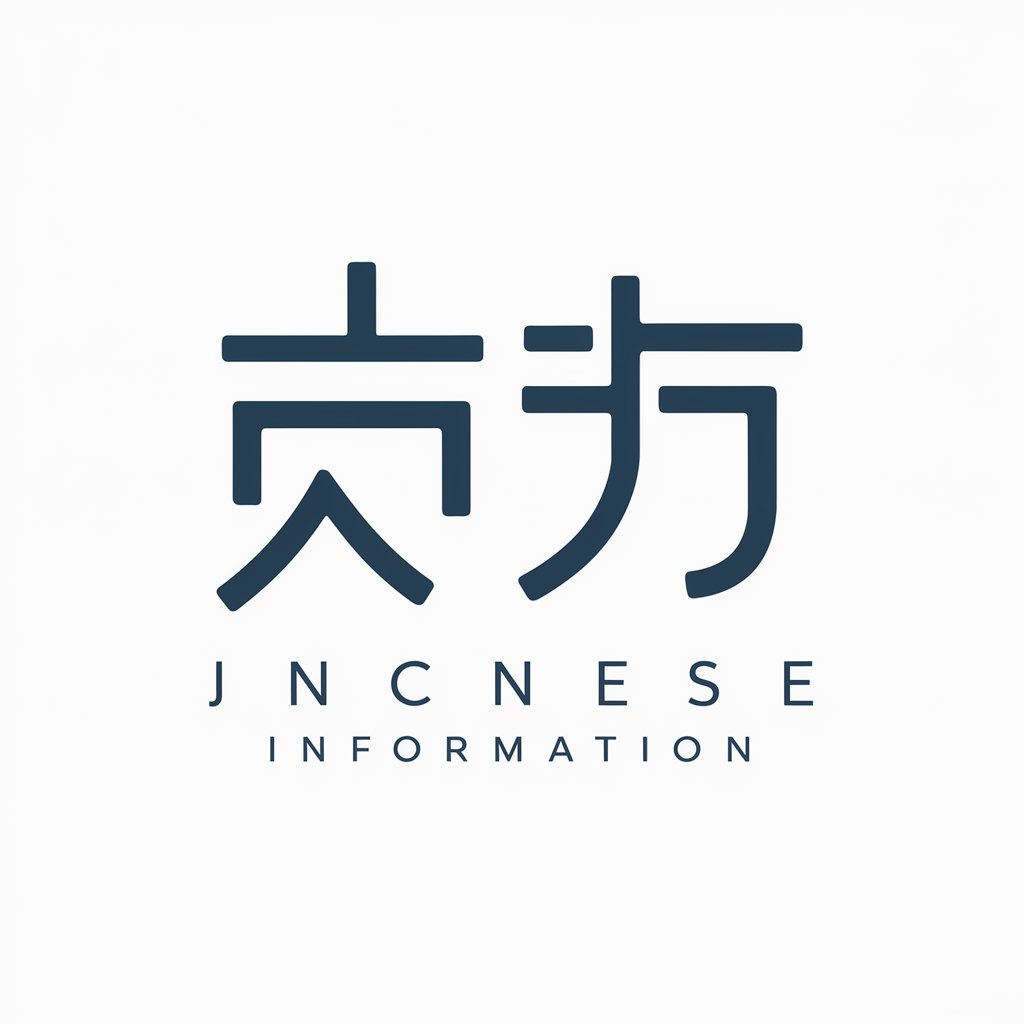
MLxpert
Empowering ML Insights with AI

Advogado Previdenciário
AI-Powered Legal Insights for Previdenciário Law

CeligoGPT
Automate smarter with AI-powered integration.

Rephrase
Sharpen Your Words with AI

Video GPT by WOXO
Craft Your Story with AI

ER Diagram Assistant with graphics
Visualize Data Relationships, Powered by AI
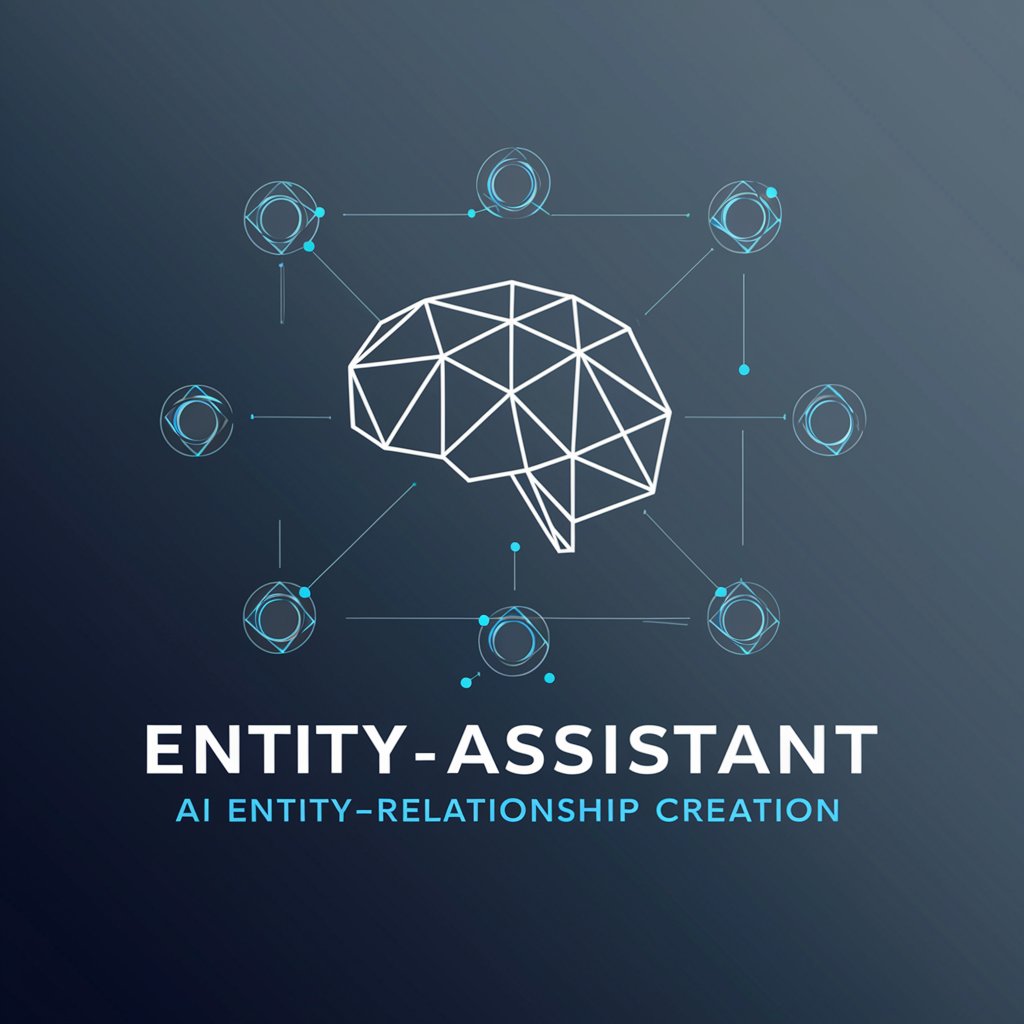
抖音爆款5S+标题
Elevate Your Douyin Videos with AI
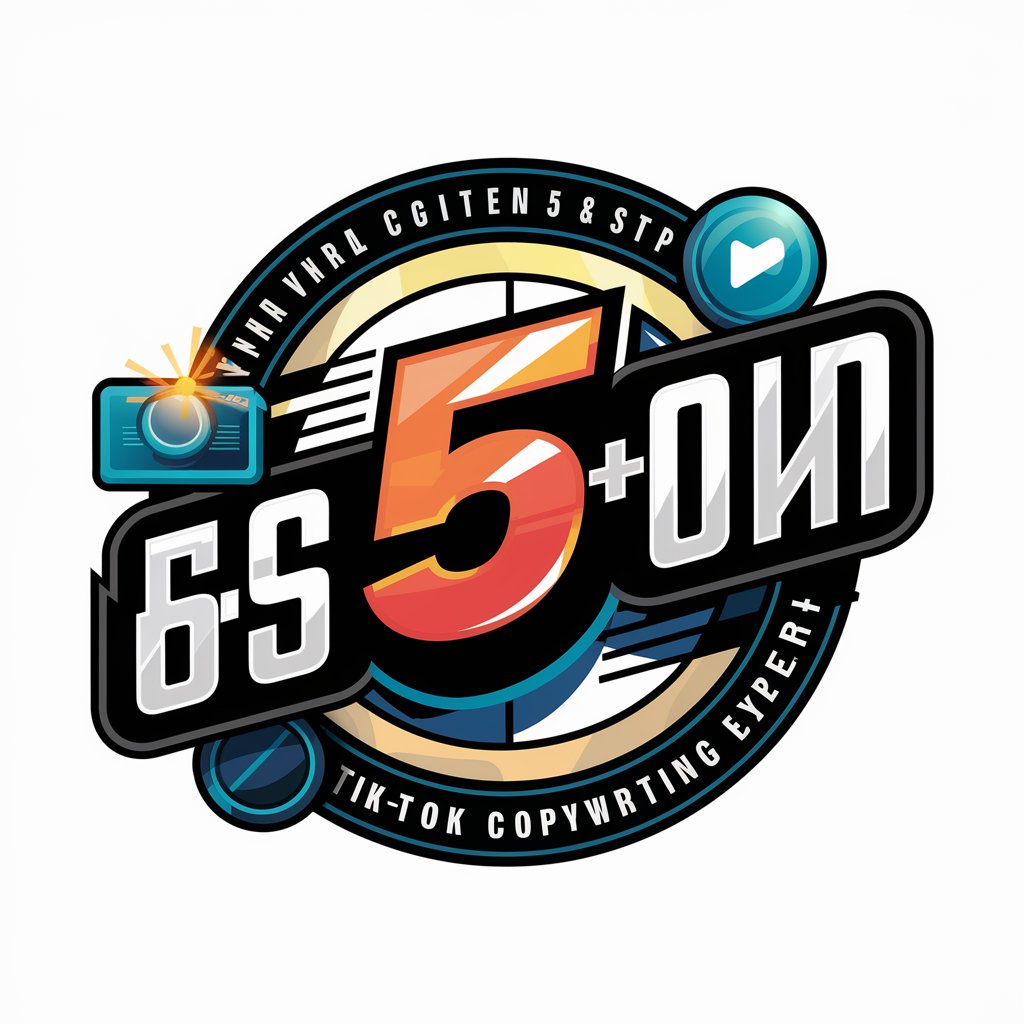
Paper Insights TL;DR
Deciphering Research with AI
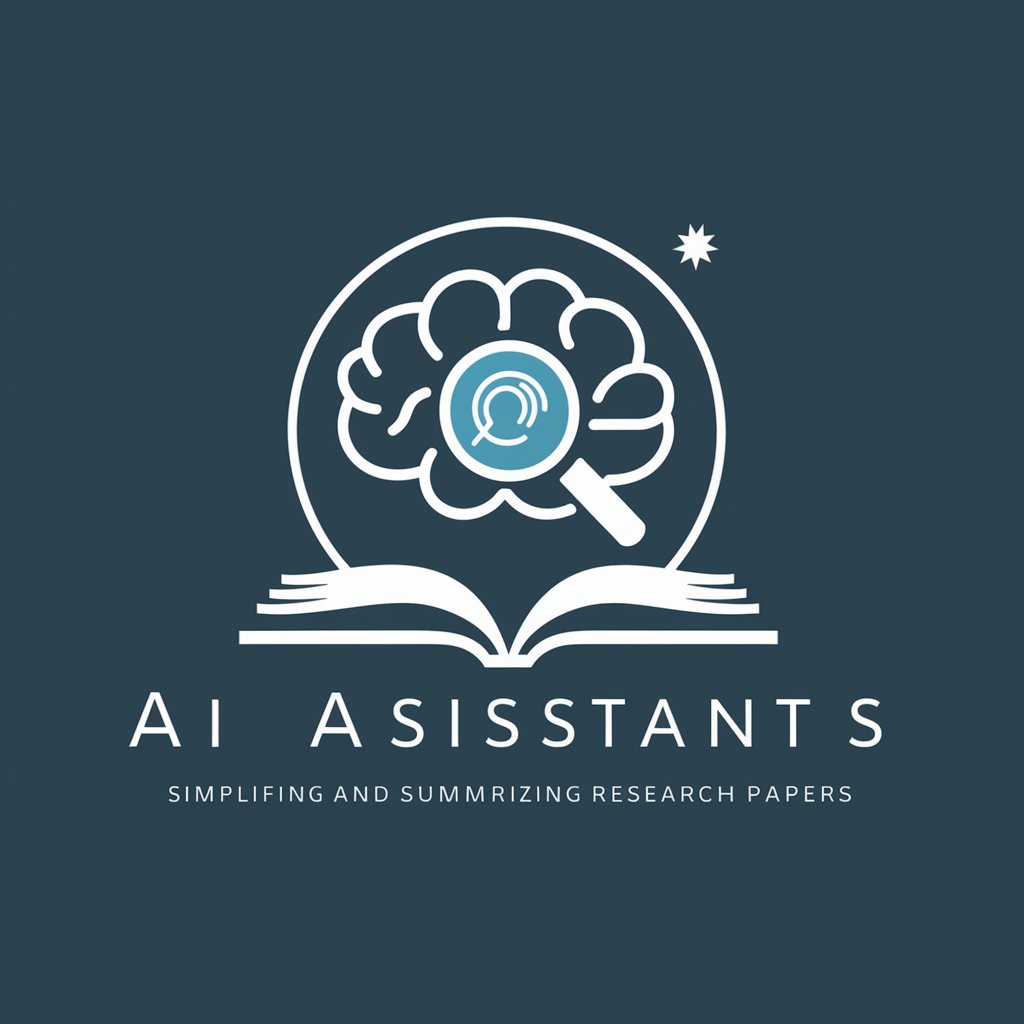
SEO Expert with Flair
Enhance Your SEO with AI Insight

Frequently Asked Questions about Rephrase
What is Rephrase primarily used for?
Rephrase is designed for academic writing and research, helping users reformulate existing text to prevent plagiarism while preserving the original meaning and academic integrity.
Can Rephrase handle texts in multiple languages?
Currently, Rephrase primarily supports texts in English, focusing on delivering high-quality rephrasing suited to the nuances and complexity of academic language.
Is there a word limit for using Rephrase?
Rephrase can handle extensive texts; however, for optimal performance and effectiveness, it is recommended to process segments of text not exceeding 10,000 words at a time.
How does Rephrase ensure the rephrased content is plagiarism-free?
Rephrase uses advanced algorithms to alter sentence structure, vocabulary, and syntax while cross-referencing for uniqueness to ensure the output is substantially different from the original.
Can I use Rephrase for professional or commercial documents?
While primarily designed for academic use, Rephrase can be effectively employed for professional and commercial writing where rephrasing is necessary to refresh content or adapt existing materials.
